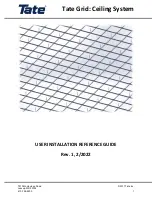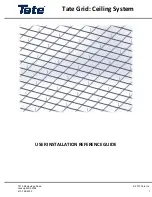
Technical specifications
Voltage range
From 16 to 40 V (typical 24 V)
Max load current for the
HFI-EBS-06
and
HFI-ABS-06
24 V applied
High volume selected
Tone 1, 2, 3 and 4 only
Base sounder only
3,5 mA
Max load current for the
HFI-EBSB-23W-06
,
HFI-EBSB-23R-06
,
HFI-ABSB-23W-06
and
HFI-ABSB-23R-06
24 V applied
High volume selected
VAD set to max power
Tone 1,2,3 and 4 only
Base sounder with beacon
21 mA
Max load current for the
HFI-EBS-06
and
HFI-ABS-06
16 V applied
High volume selected
Tone 1, 2, 3 and 4 only
Base sounder only
4 mA
Max load current for the
HFI-EBSB-23W-06
,
HFI-EBSB-23R-06
,
HFI-ABSB-23W-06
and
HFI-ABSB-23R-06
16 V applied
High volume selected
VAD set to max power
Tone 1,2,3 and 4 only
Base sounder with beacon
32 mA
Max load current for the
HFI-EBS-06
and
HFI-ABS-06
40 V applied
High volume selected
Tone 1, 2, 3 and 4 only
Base sounder only
2,5 mA
Max load current for the
HFI-EBSB-23W-06
,
HFI-EBSB-23R-06
,
HFI-ABSB-23W-06
and
HFI-ABSB-23R-06
40 V applied
High volume selected
VAD set to max power
Tone 1,2,3 and 4 only
Base sounder with beacon
13 mA
VAD’s signal frequency
All VAD models
0.5 Hz
VAD typical flash coverage for the
HFI-EBSB-23W-06
and
HFI-ABSB-23W-06
VAD set to high power
C 3 - 15 and O 4.5 - 15.2
VAD typical flash coverage for the
HFI-EBSB-23R-06
and
HFI-ABSB-23R-06
VAD set to high power
C 3 - 10
VAD typical flash coverage for the
HFI-EBSB-23W-06
and
HFI-ABSB-23W-06
VAD set to low power
C 3 - 9.2
VAD typical flash coverage for the
HFI-EBSB-23R-06
and
HFI-ABSB-23R-06
VAD set to low power
O 1.7 - 6.0
VAD’s signal colour
HFI-EBSB-23W-06
and
HFI-ABSB-23W-06
(white)
HFI-EBSB-23R-06
and
HFI-ABSB-23R-06
(red)
Acoustic output frequency range (all tones)
From 440 to 2900 Hz
Maximum acoustic intensity
Tone 1,2,3 and 4 only
92.6 dB(A)
Ambient temperature range
From -10 to +55 °C
Maximum tolerated humidity
95% RH (without condensation)
IP
21C
Weight (
HFI-EBS-06
and
HFI-ABS-06
)
200 g
Weight (
HFI-EBSB-23W-06
,
HFI-EBSB-23R-06
,
HFI-ABSB-23W-06
and
HFI-ABSB-
23R-06
)
210 g
L20-HFIAEB6-1400 (vA.2)
























